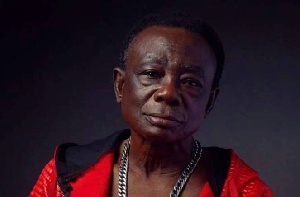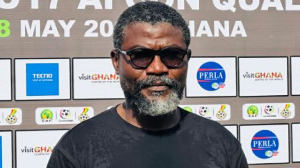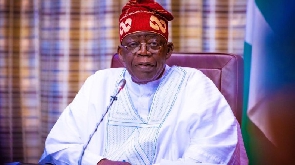General News of Wednesday, 14 September 2016
Source: B&FT
ECG compact can be reviewed - US Ambassador
The United States Ambassador to Ghana, Robert P. Jackson, has said the 25-year private sector participation in the ECG “can be reviewed,” as he allayed fears by workers of the company that they would lose their jobs.
In an interview with the B&FT at the launch of the Integrated Resource and Resilience Planning (IRRP) project, which is to develop a master plan for Ghana’s power sector, Mr. Jackson said the Compact contains a review clause which allows government to pull out before the end of the 25 years if it is not satisfied.
“The period of the Compact is 25 years but it can be reviewed during that time. It is 25 years because it will take a long time for a company to recoup US$500m it has invested. But there is a review clause in place whereby, if the government is not happy with the concessionaire’s operation, it can be revisited,” he said.
Enough education and consultations, he said, have taken place to sensitize all stakeholders to appreciate the advantages the Compact will bring to the economy in the long term, hence, ECG workers have no cause to complain.
“There has been a lot of education about the Compact. Union has been very involved in the development of the Compact and so I am not sure why there is the resistance. I think it is best to explain that.
Are the people of Ghana happy with ECG? I think the answer to that question is no. Should 5,000 or 6,000 workers hold the whole country to hostage and hold back its development? That is the question Ghanaians need to be asking,” he said.
“I think the workers are fearful of change. No one likes change and managing change is a real challenge. But I think it is a good deal for Ghana and I think it will put ECG on a firm foundation for future growth.
I am saying that I don’t think that their concerns are well-founded. They have made lots of allegations such as: they will see higher tariffs. But it is not up to the new concessionaire to set tariffs. It is up to the PURC. The utility will still be owned by the government,” he said.
He further dismissed the insistence by other commentators that the concessionaire will be an American private company, saying: “There is no American company among the concessionaires.”
The Millennium Challenge Compact II, which was signed on August 5, 2014 between the Republic of Ghana and the United States of America, represented by the Millennium Challenge Corporation (MCC) became effective on September 6, 2016.
The Millennium Development Authority (MiDA), which is the implementing body on Ghana’s side, announced last week that the country had met all the conditions precedent to entry into force of the Compact and submitted all the required documentation in that regard.
Out of the over 60 companies that expressed interest, MiDA shortlisted six, out of which one will eventually be selected as the concessionaire to manage the country’s biggest power distributor for the 25-year period.
Out of the US$498 million Compact amount, about US$350 million will be invested in the ECG as part of plans to make it operationally and financially more efficient.
Entertainment

‘Mahama has been taking care of me' – JA Adofo opens up
Opinions









